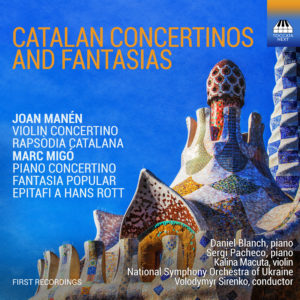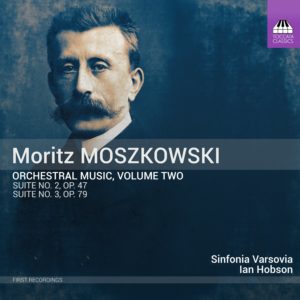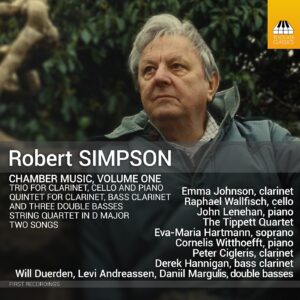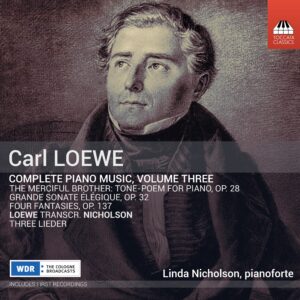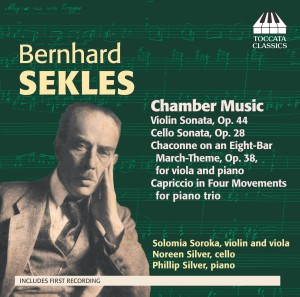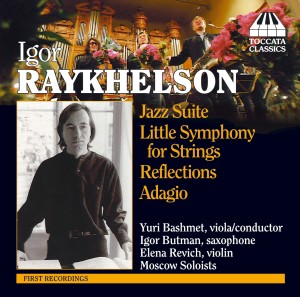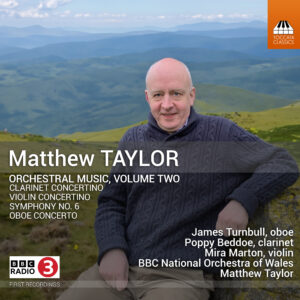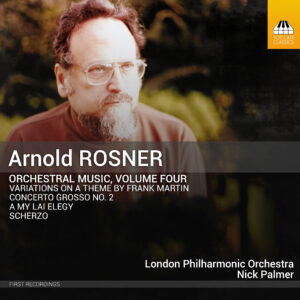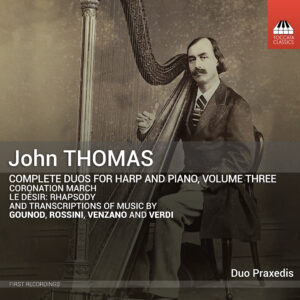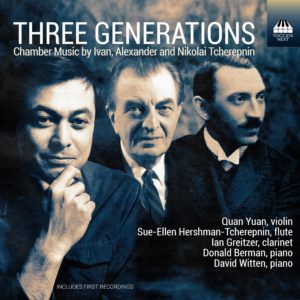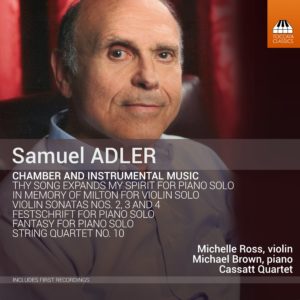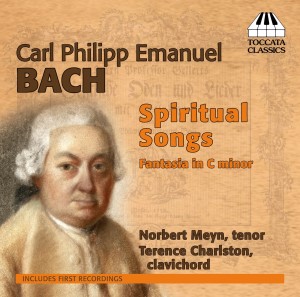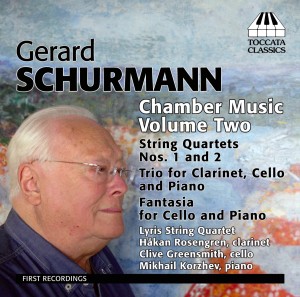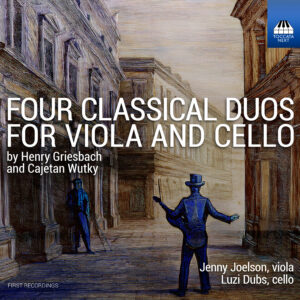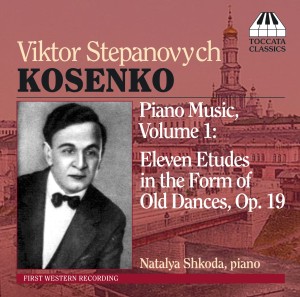Search Results for "Space Wolf: The First Omnibus mp3 torrent" – Page 14
Freda Swain: Piano Music, Volume One
The English composer-pianist Freda Swain (1902–85) left a huge legacy of music that was largely unknown even while she was alive. Her compositions – hundreds of them, in a series of large boxes – found their way to the Swiss pianist Timon Altwegg, who begins his survey of her piano music with Swain’s three mighty sonatas. They are astonishing discoveries: big-boned, virtuosic pieces, full of wild energy, crossing from late Romanticism to a more modern idiom – from Rachmaninov to Bartók, so to speak – and with Bax’s fondness for Celtic seascapes and a hint of Debussyan Impressionism.
Timon Altwegg, piano
Catalan Concertinos and Fantasias
Most of the works by the two Catalan composers heard here – Joan Manén (1883–1971) and Marc Migó (b. 1993) – use material from their folk tradition, making the music fresh, immediate and direct, rather in the manner of Manuel de Falla. But there is also a loose connection with Vienna: Manén’s Violin ‘Concertino’ – an unusually modest label for a full-scale concerto – is something of a cousin to the Korngold Concerto; and Migó’s poignant Epitafi a Hans Rott was written in memory of a short-lived Austrian composer who was a close friend of Gustav Mahler.
Kalina Macuta, violin (Tracks 6 – 8)
Sergi Pacheco, piano (Tracks 9, 10)
Daniel Blanch, piano (Track 12)
National Symphony Orchestra of Ukraine
Volodymyr Sirenko, conductor
Moritz MOSZKOWSKI: Orchestral Music, Volume Two
The Polish composer Moritz Moszkowski (1854–1925) is best remembered for a handful of virtuoso piano pieces, but he also produced a substantial body of orchestral music, most of it unperformed for a century or more. The first volume in this first-ever survey of his orchestral output presented the monumental ‘Symphonic Poem in Four Movements’ Johanna d’Arc – a vast symphonic fresco depicting the life, death and transfiguration of the heroine of Schiller’s 1801 play Die Jungfrau von Orleans – and drew a warm welcome from the musical press. These two big-hearted Suites continue that process of discovery, opening a treasure chest of gorgeous melody and sumptuous orchestral writing that make these forgotten gems irresistibly attractive.
Sinfonia Varsovia
Ian Hobson, conductor
First recordings
Robert Simpson: Chamber Music, Volume One
Most of the chamber music of Robert Simpson (1921–97) was recorded by Hyperion in the 1980s and ‘90s, but there remained some gaps in that discography. The Robert Simpson Society has sponsored two albums to plug them, this first one including an early string quartet and two songs that came to light only after the composer’s death. In later life Simpson used to say that poems good enough to set didn‘t need music – but these two youthful essays prove that he was already a master. Simpson wrote the D major string quartet as a student at Durham; an examiner described it as ‘fearless’. The two mature works – vintage Simpson – bring his sense of symphonic momentum into the clarinet repertoire.
The Tippett Quartet
Emma Johnson, clarinet
Raphael Wallfisch, cello
John Lenehan, piano
Eva-Maria Hartmann, soprano
Cornelis Witthoefft, piano
Peter Cigleris, clarinet
Derek Hannigan, bass clarinet
Will Duerden, double bass
Levi Andreassen, double bass
Daniil Margulis, double bass
Carl Loewe: Complete Piano Music, Volume Three
Known in his lifetime as ‘the north German Schubert’, Carl Loewe (1796–1869) is remembered today chiefly as a composer of songs and ballads. Yet there is a considerable body of piano music that is strikingly innovative in content, expression and harmony, containing the germs of ideas later taken up by composers such as Wagner and Liszt. Loewe was unquestionably a brilliantly original talent, a major figure in ushering in the Romantic era – with the remarkable Four Fantasies of 1854 heard here ‘documenting’ in music the contemporary emigration of German families to the United States. This third volume of Linda Nicholson’s survey of his piano music on historical instruments concludes its first-ever complete recording on any kind of piano.
Linda Nicholson, Erard piano, c. 1839
Bernhard Sekles: Chamber Music
Bernhard Sekles (1872-1933) was one of the leading figures in German music in the first decades of the twentieth century, prominent as composer, educator and administrator. In 1928, as director of the Hoch Conservatorium in Frankfurt, he established the first academic programme in jazz studies, an act of courage and conviction that unleashed furious attacks from the Nazi press. His own music, banned during the Third Reich, has been virtually forgotten, although he composed in all major genres, including opera, symphony, lieder and chamber music. As the works on this recording illustrate, Sekles' music finds room for diverse elements — including Neoclassicism, Brahmsian Romanticism and jazz — and can be refreshingly quirky.
Solomia Soroka, viola, violin
Noreen Silver, cello
Phillip Silver, piano
Igor Raykhelson: Jazz Suite and other works
In the words of his friend the violist and conductor Yuri Bashmet, the composer-pianist Igor Raykhelson – born in Leningrad in 1961 and now resident in New York – 'possesses a superb mastery of both classical and jazz idioms’. The highly individual fusion of styles that results, Bashmet continues, 'elevates his music over that of many other composers creating in the genre often referred to as “crossover”’. The Jazz Suite on this CD exhibits Raykhelson’s popular style at its most infectiously catchy; the other three works here – in the Russian tradition of writing for strings initiated by Tchaikovsky – present the more classical side of his muse.
Igor Raykhelson, piano
Yuri Bashmet, viola, conductor
Elena Revich, violin
Igor Butman, saxophone
Yuri Golubev, double-bass
Eduard Zizak, drums
Moscow-Soloists, ensemble
Matthew Taylor: Orchestral Music, Volume Two
The music of the English composer Matthew Taylor (b. 1964) manages both to honour tradition and pull out some surprises. Clearly in the tradition that leads from Carl Nielsen through Robert Simpson, the works here observe Nielsen’s fondness for dignity of expression, the occasional hint of power tempered by an almost Mendelssohnian lightness of touch – and, here and there, a note of levity: the Sixth Symphony, after all, is dedicated to the memory of Sir Malcolm Arnold. The three concertante works are performed here by musicians whose playing Taylor particularly admires.
James Turnbull, oboe
Poppy Beddoe, clarinet
Mira Marton, violin
BBC National Orchestra of Wales
Matthew Taylor, conductor
Arnold Rosner: Orchestral Music, Volume Four
The musical language of the New York-based Arnold Rosner (1945–2013) clothes the modal harmony and rhythm of pre-Baroque polyphony in rich Romantic colours, producing a style that is instantly recognisable and immediately appealing. This fourth Toccata Classics album of his orchestral music opens with an engaging and energetic early Scherzo and a Concerto Grosso that has something of the dignified reserve of the Swiss composer Frank Martin, whom Rosner much admired – as the broadly expressive Variations on a Theme by Frank Martin go on to show. Rosner’s A My Lai Elegy, a symphonic poem inspired by a massacre of civilians in Vietnam, has few equals in the orchestral repertoire: it veers from profound sadness to wild, freewheeling anger – protest music at its grandest and most passionate.
London Philharmonic Orchestra
Nick Palmer, conductor
John Thomas: Complete Duos for Harp and Piano, Volume Three
Harpist to Queen Victoria, the Welsh composer John Thomas (1826–1913) also wrote prolifically for his own instrument, both for solo harp and for duos of two harps or harp and piano – a combination where the different sounds of the two instruments enhance the clarity of the texture. Thomas’ original works use the elegant Romantic style of his own day, but he also left a generous legacy of transcriptions, especially of operatic favourites. Although some of his music was intended for the Victorian drawing room, other pieces require a virtuoso technique – and all of it has a thoroughly engaging melodic appeal.
Duo Praxedis
Praxedis Hug-Rütti, harp
Praxedis Geneviève Hug, piano
Three Generations
This album explores music by three father-and-son generations of the Tcherepnin family of composers: Nikolai, Alexander and Ivan. Although each wrote a wide range of scores, from solo pieces to operas and ballets, this recording focuses on their chamber music, presenting pieces spanning 95 years. Nikolai’s works for violin and piano reveal a late-Romantic, post-Tchaikovskian sensibility, whereas those of Alexander have a more modern, twentieth-century touch, closer to the style of his friend Sergei Prokofiev (a student of Nikolai Tcherepnin). Ivan is represented by two works — early and late – for flute, clarinet and piano, which have an improvisatory and playful quality.
Quan Yuan, violin (Tracks 1–9)
Sue-Ellen Hershman-Tcherepnin, flute (Tracks 10, 11)
Ian Greitzer, clarinet (Track 11)
David Witten, piano (Tracks 1–10)
Donald Berman, piano (Track 11)
Samuel Adler: Chamber and Instrumental Music
The works of Samuel Adler – born in Mannheim in 1928 but long since one of the leading figures of American music – are both modern and approachable: they blend an edgy angularity with long flights of lyrical melody, and are often informed with both a buoyant charge of energy and an impish sense of humour. This conspectus of his chamber and instrumental music covers almost sixty years of his activity as a composer and thus presents a kind of portrait in sound.
Michelle Ross, violin (Tracks 2–6, 9–11)
Michael Brown, piano (Tracks 1–4, 6–11)
Cassatt Quartet (Track 12)
Muneko Otani and Jennifer Leshnower, violins
Ah Ling Neu, viola
Elizabeth Anderson, cello
C. P. E. Bach: Spiritual Songs
C. P. E. Bach's two collections of religious songs, published in 1758 and 1780-81, were among the most popular eighteenth-century Lieder publications. Here a selection of them is recorded for the first time with complete texts and accompanied with the clavichord, the composer's favourite instrument, underlining their intimate nature, intended more for private devotional use than for public performance. The recording includes the 'Hamlet Fantasy' that resulted when the poet Heinrich Wilhelm von Gerstenberg imposed his paraphrase of Hamlet's soliloquy on one of C. P. E. Bach's keyboard pieces.
Norbert Meyn, tenor
Terence Charlston, clavichord
Gerard Schurmann: Chamber Music Volume Two
The Anglo-Dutch composer Gerard Schurmann, born in the East Indies in 1924 and based in the USA since 1981, first made his mark in Britain in the 1940s and '50s, as a pianist and composer, particularly of chamber music and, later, of film scores. His concert output is intense, passionate, tightly argued and charged with energy, but also infused with lyricism, as these four works demonstrate.
Lyris Quartet, string quartet
Håkan Rosengren, clarinet
Clive Greensmith, cello
Mikhail Korzhev, piano
Four Classical Duos for Viola and Cello
For the past two centuries or so, making music has largely been a public business, with paying audiences listening to professional musicians. But for most of western history, outside of formal and religious occasions and local festivities, music-making was largely a domestic affair, with individuals playing for their own pleasure. Most of the music written for the drawing room has long been lost from sight, and its composers forgotten, the two heard here – the Austrian Cajetan Wutky and German-English John Henry (né Justus Heinrich) Griesbach – being cases in point. Their Haydnesque string duos, only recently rescued from obscurity in modern publications, hint at the pleasure their first patrons would have found in performing them.
Jenny Joelson, viola
Luzi Dubs, cello
Viktor Stepanovych Kosenko: Piano Music Volume One
Viktor Stepanovych Kosenko (1896–1938) was one of the most important Ukrainian composers and pianists of the first half of the twentieth century. His Eleven Etudes in the Form of Old Dances, Op. 19, of 1927–29 offer an organic synthesis of the late-Romantic piano tradition, neo-Classical impulses in their use of Baroque dance-forms, and elements of Ukrainian folk-music. This recording of a neglected monument in the piano literature is the first step in the discovery of a composer who was once a cultural icon in his native Ukraine but is now as good as unknown outside its borders.
Natalya Shkoda, piano
Stay In the Know
JOIN THE TOCCATA NEWSLETTER
"*" indicates required fields
By visiting our site, you agree to our privacy policy regarding cookies, tracking statistics, etc.

